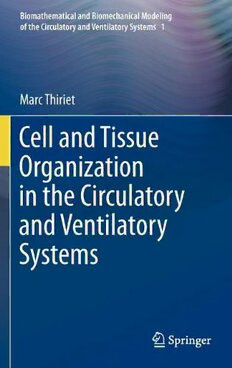
Cell and Tissue Organization in the Circulatory and Ventilatory Systems PDF
748 Pages·2011·5.052 MB·English
Most books are stored in the elastic cloud where traffic is expensive. For this reason, we have a limit on daily download.
Preview Cell and Tissue Organization in the Circulatory and Ventilatory Systems
Description:
The volumes in this authoritative series present a multidisciplinary approach to modeling and simulation of flows in the cardiovascular and ventilatory systems, especially multiscale modeling and coupled simulations. The cardiovascular and respiratory systems are tightly coupled, as their primary function is to supply oxygen to and remove carbon dioxide from the body's cells. Because physiological conduits have deformable and reactive walls, macroscopic flow behavior and prediction must be coupled to nano- and microscopic events in a corrector scheme of regulated mechanisms. Therefore, investigation of flows of blood and air in physiological conduits requires an understanding of the biology, chemistry, and physics of these systems together with the mathematical tools to describe their functioning. The present volume is devoted to cellular events that allow adaptation to environmental conditions, particularly mechanotransduction. It begins with cell organization and a survey of cell types in the vasculature and respiratory tract. It then addresses cell structure and functions, especially in interactions with adjoining cells and matrix.Describes cell types, functions, and fate in the regulated activities of the circulatory and respiratory systems Presents applications of mechanics and mathematics for an understanding and prediction of function in health and diseaseIntegrates biology, chemistry, and physics for a multidisciplinary understanding of physiological flows
See more
The list of books you might like
Most books are stored in the elastic cloud where traffic is expensive. For this reason, we have a limit on daily download.
